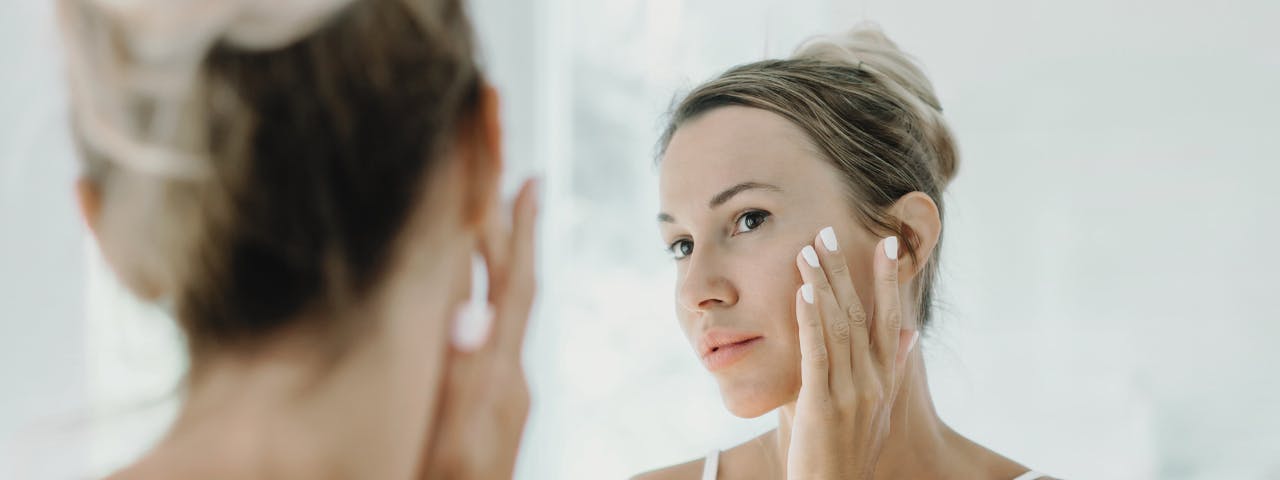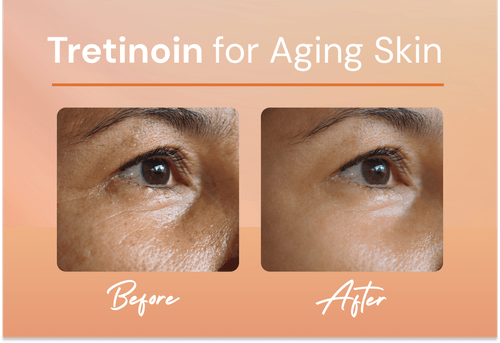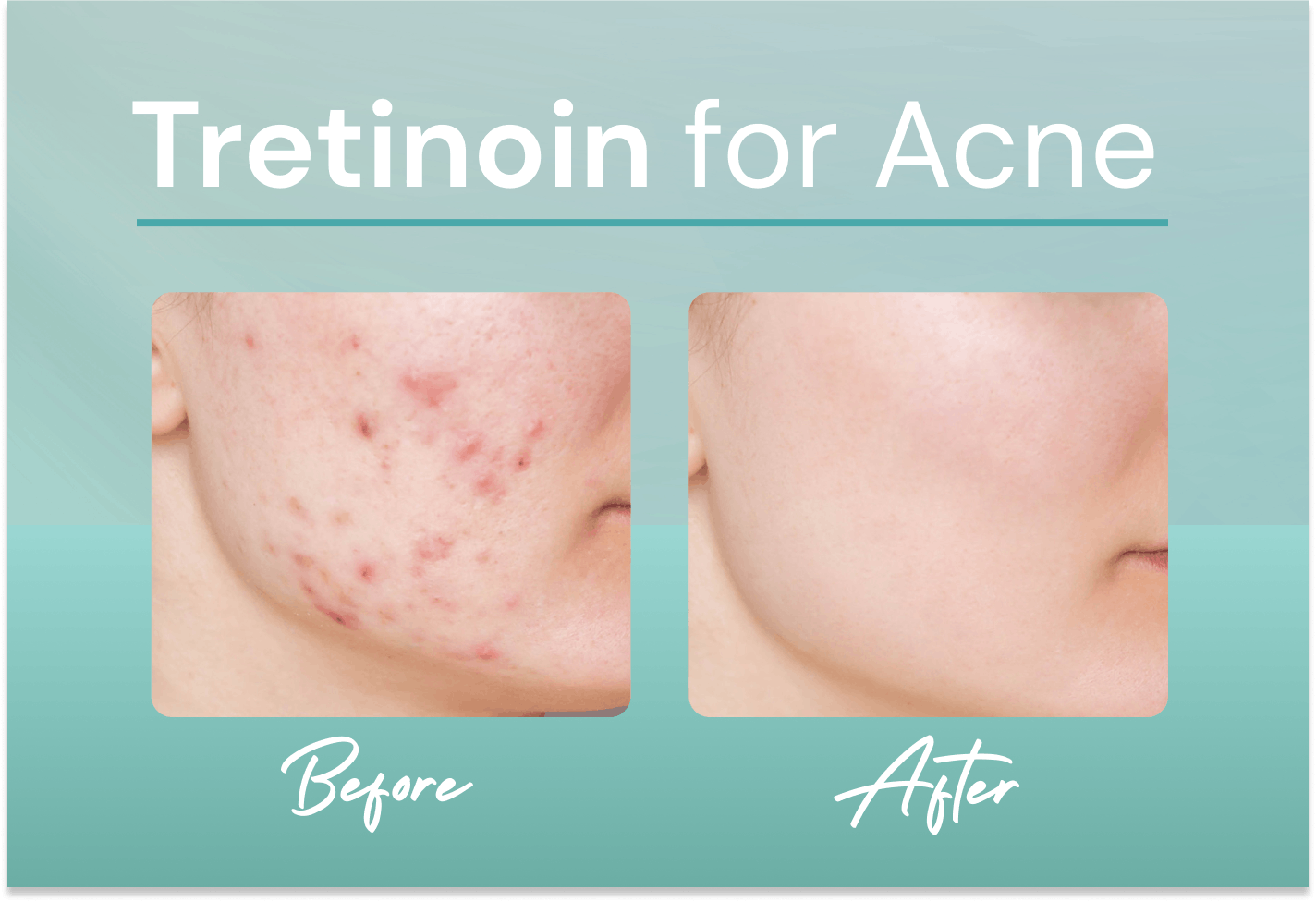Did you know that acne is the most common skin condition in the United States, affecting up to 50 million Americans annually? It’s true! Acne can occur at any stage of life and can impact people of all skin types, but the good news is that today, virtually every person’s acne can be successfully treated.
There are several routes that you can take to help treat your acne, whether you’re using over-the-counter medications, receiving prescription treatment from a Board-Certified Dermatologist, or are incorporating home remedies and skincare habits to manage your breakouts. Let’s dive into some of the daily practices that you should be taking into account for your acne!
Skin Care
Wash your face.
It's no secret that washing your face helps to remove dirt and oil from your skin, but what’s commonly mistaken is the frequency at which you should be doing so. Limit face washing to twice a day and after sweating, and remove any makeup before cleansing, including eye makeup. Ask your dermatologist how often you should wash your face, as overwashing your face can cause irritation, and yes, breakouts!
To wash your face:
- Use your fingers to gently apply a mild or medicated cleanser.
- Rinse your skin with lukewarm water.
- Gently pat your skin dry.
Never scrub your skin, even if it feels greasy or dirty, as this can further irritate it. Make sure to apply any acne medications and moisturizer after washing your face Applying moisturizer directly after washing your face can help to lock in moisture and hydrate your skin.
Avoid tanning.
Tanning — both indoors and out — damages your skin, which can make acne worse. This damage can also lead to skin cancer, including melanoma, the deadliest form, and premature skin aging, like wrinkles and age spots. In addition, some acne medications cause the skin to be more sensitive to ultraviolet light, making it even more important to avoid tanning from both the sun and indoor tanning devices.
Do not share makeup or makeup applicators.
Acne is not contagious. However, when you share makeup or makeup tools, the acne-causing bacteria, oil, and dead skin cells from other people’s skin can transfer to your skin. These culprits can clog your pores, leading to breakouts. It’s best to keep your makeup to yourself, and remember to wash your brushes frequently!
Leave your skin alone.
Touching your skin throughout the day can spread dirt, oil, and bacteria from your hands to your face. No matter how tempting it is to pop that pimple, resist touching, picking, and popping your acne. Popping a pimple may seem like the fastest way to clear your acne, but it can actually worsen it, prolong healing, and in some cases, cause scarring.
Regularly wash your sheets and pillowcases.
Sheets and pillowcases collect dead skin cells and bacteria, which can transfer to your skin and cause breakouts. Changing your sheets twice a week may help, especially when your acne appears on your back.
When washing sheets and pillowcases, consider using fragrance-free laundry products, as many fragrances contain irritating chemicals.
Protect your skin when playing sports.
Acne is extremely prevalent amongst athletes, who are often training multiple times a day and exposing their skin to contaminated sports equipment. In addition to washing your body after training sessions, it’s important to keep your equipment as clean as possible, as buildup of bacteria can happen fast. When playing sports, certain equipment, such as a helmet and tight clothing are also rubbing against your skin, causing contamination. Protect your skin by placing clean, soft padding between the equipment and your skin to help eliminate rubbing. Choose moisture-wicking, loose clothing when possible.
At Cortina, treating acne is easy. Simply take an online assessment, get a treatment plan from a Board-Certified Dermatologist, and your customized medication will be delivered to your door. Get started today!
Products
Read the labels on skin care products.
When selecting products and cosmetics, look for the following terms on the label, which indicate that the product won’t clog your pores:
- Non-comedogenic
- Non-acnegenic
- Oil free
- Won't clog pores
Because these products may still cause acne in some people, you may need to try different products before identifying ones that work with your skin. Everyone’s acne is different, so it’s really about finding what works best for you. zYou may experience some trial and error, but feel free to reach out to your Cortina Board-Certified Dermatologist for any recommendations.
Apply sunscreen.
All year round, and even if it’s raining! The sun’s rays are strong, and sunscreen helps to prevent sun damage that can worsen acne and lead to skin cancer and premature skin aging. Generously apply a broad-spectrum, water-resistant sunscreen with an SPF of 30 or higher to all exposed skin 1 minutes before going outdoors. To prevent acne breakouts, look for sunscreens that contain zinc oxide and titanium dioxide. Remember to reapply sunscreen every two hours, or after swimming or sweating!
Apply moisturizer.
A moisturizer should be a part of your skincare routine regardless, but you should be extra considerate of dry skin when taking your prescription acne treatment. Many acne treatments can dehydrate the skin, making it important to keep up with your moisturizing responsibilities..
Consider your hair care products.
If your acne appears along your hairline, forehead, or the back of your neck, your hair care products may be contributing to your acne. Some hair care products contain oil, which can transfer to your skin and clog your pores. Try to identify the hair care product(s) that is causing your acne, and replace it with a product that is labeled oil-free or non-comedogenic. When in doubt, ask your Board-Certified Dermatologist what products you should be using.



